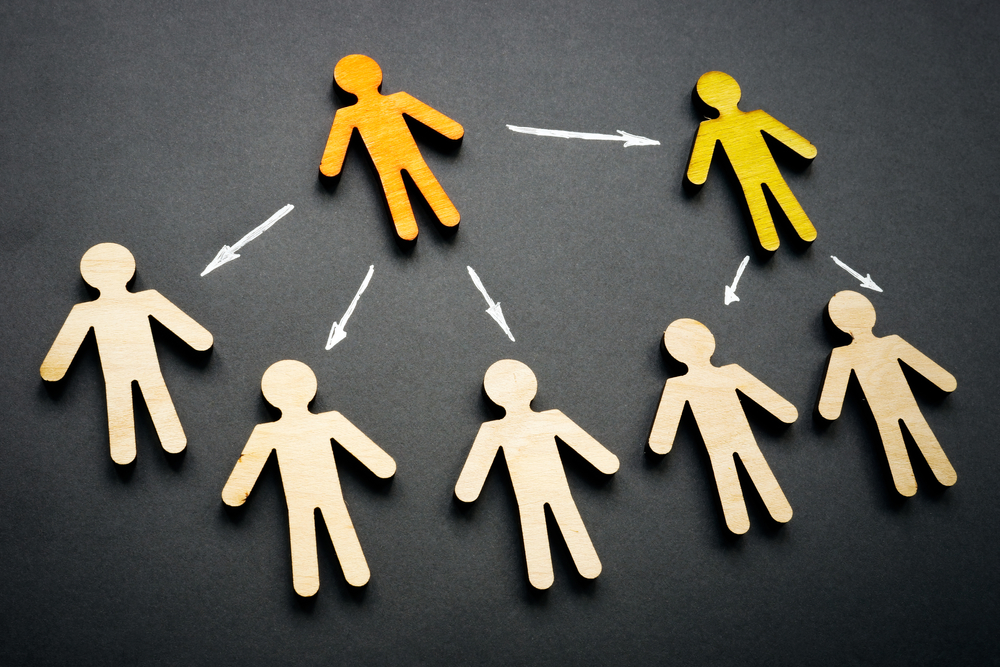Sometimes, life can feel like one long to-do list. There’s always something more to get done, and before you know it, your days are jam-packed with commitments that leave you feeling stressed out and overwhelmed. By letting go of some of the unnecessary obligations you’ve picked up along the way, you can free up more time for yourself and reduce stress. Imagine how different your life could look if you stopped saying “yes” to everything and started focusing on what really matters to you. This isn’t about doing less just for the sake of it, but about making room for what brings you joy, calm, and balance. Here are 20 commitments that might be weighing you down — and how letting go of them can give you back your time and peace of mind.
Contents
- 1 Cut Back on Multitasking
- 2 Reduce Social Media Time
- 3 Delegate Tasks When Possible
- 4 Stop Trying to Please Everyone
- 5 Eliminate Unnecessary Meetings
- 6 Let Go of Toxic Relationships
- 7 Avoid Overplanning
- 8 Say No to Procrastination
- 9 Minimize Clutter
- 10 Limit Financial Debt
- 11 Stop Overthinking
- 12 Avoid Negative News Overload
- 13 Avoid Unnecessary Purchases
- 14 Stop Working Beyond Your Limits
- 15 Avoid Taking on Others’ Problems
- 16 More From RetailShout
- 17 15 Intriguing Food History Facts You Won’t Be Able to Forget
- 18 17 Southern Snacks the Rest of the World Needs to Experience
Cut Back on Multitasking

Multitasking can seem efficient, but it often decreases productivity and increases stress. When you juggle multiple tasks, your brain struggles to focus, leading to errors and incomplete work. Prioritizing tasks and focusing on one thing at a time can help you work more efficiently. Studies show that single-tasking boosts both performance and satisfaction. Simplifying your task list this way will reduce stress and free up more time for relaxation.
Reduce Social Media Time

Spending too much time on social media can drain your energy and increase anxiety. Constant notifications and updates keep your mind in a state of distraction. By cutting back on your social media use, you’ll free up hours in your day that you can use for more meaningful activities. Set boundaries for when and how long you engage online to maintain a healthier balance. This shift can enhance both your mental clarity and emotional well-being.
Delegate Tasks When Possible

You don’t have to do everything yourself. Delegating tasks to others can lighten your workload and reduce feelings of overwhelm. Trusting others to help out frees you up to focus on more important responsibilities or take time for self-care. Whether at work or home, effective delegation can improve efficiency and lower stress levels. Letting go of the need to control every detail also promotes better relationships with those around you.
Stop Trying to Please Everyone

Trying to meet everyone’s expectations is a fast track to burnout. Constantly striving to make others happy can lead to overcommitment and resentment. By recognizing that it’s impossible to please everyone, you give yourself permission to prioritize your own needs and goals. Learning to set boundaries and say “no” will free up time and reduce emotional strain. It’s essential to value your own time and well-being just as much as others’.
Eliminate Unnecessary Meetings

Many meetings are inefficient and could be replaced by a simple email or message. Attending frequent, lengthy meetings can eat up your day, leaving you with less time to complete important tasks. Consider cutting back on non-essential meetings or suggesting alternative ways to communicate. By freeing up these chunks of time, you’ll have more control over your schedule and reduce unnecessary stress.
Let Go of Toxic Relationships

Maintaining relationships with people who drain your energy can cause significant stress. Whether it’s a coworker, friend, or family member, toxic relationships take a toll on your mental health. It’s important to recognize when a relationship is causing more harm than good. By letting go of these relationships or setting firm boundaries, you can regain emotional peace and free up time for healthier connections.
Avoid Overplanning

Overplanning every aspect of your life can create anxiety and leave little room for spontaneity. When things don’t go as planned, you may feel frustrated or stressed. By leaving open spaces in your schedule, you allow yourself to adapt to unexpected events more easily. This approach also gives you time to rest, think, and enjoy life without the pressure of sticking to a rigid schedule.
Say No to Procrastination

Procrastination builds up stress by pushing important tasks to the last minute, creating unnecessary pressure. While it may feel comforting to delay difficult tasks, procrastination ultimately leads to more anxiety and rushed work. Developing the habit of completing tasks promptly frees up time later and reduces the stress of looming deadlines. Tackling responsibilities head-on gives you a sense of accomplishment and allows for more relaxation afterward.
Minimize Clutter

Physical clutter in your living or working space can lead to mental clutter. A disorganized environment creates distractions and raises stress levels. By decluttering your surroundings, you can enhance focus and create a more peaceful atmosphere. Simplifying your space also makes it easier to locate items and complete tasks efficiently. The mental clarity that comes from a clean environment often leads to increased productivity and reduced stress.
Limit Financial Debt

Financial debt is a significant source of ongoing stress for many people. Carrying debt creates worry about making payments and can limit your freedom to enjoy life. By avoiding unnecessary debt, such as credit card balances, you free up mental energy and reduce financial anxiety. Living within your means and focusing on financial stability allows you to plan for the future with peace of mind.
Stop Overthinking

Overthinking can paralyze decision-making and lead to unnecessary stress. Constantly worrying about potential outcomes or reliving past mistakes keeps you trapped in a loop of anxiety. By learning to trust your instincts and make decisions with confidence, you can reduce the mental burden of overanalyzing every situation. This practice helps free up time and mental energy for more productive and fulfilling activities.
Avoid Negative News Overload

Constant exposure to negative news can heighten stress and make the world feel overwhelming. While staying informed is important, it’s essential to limit your intake of distressing information. Taking breaks from news consumption allows your mind to recharge and focus on more positive or neutral experiences. Controlling your media diet can help you maintain a healthier mental state and reduce unnecessary anxiety.
Avoid Unnecessary Purchases

Constantly buying items that aren’t necessary can clutter your home and stress your finances. This habit leads to more things to manage, organize, and eventually declutter. Focusing on mindful spending allows you to avoid accumulating unnecessary items, freeing up both physical and mental space. By only purchasing what you truly need, you also reduce financial strain and enjoy a more minimalist lifestyle. Being intentional with your purchases can lead to a sense of peace and satisfaction.
Stop Working Beyond Your Limits

Pushing yourself to work long hours without breaks can lead to burnout. Overworking not only diminishes productivity but also increases stress and impacts your health. Learning to respect your limits and take breaks when needed helps maintain a sustainable work-life balance. By setting boundaries at work, you allow time for personal life and self-care. This practice reduces stress and improves overall well-being.
Avoid Taking on Others’ Problems

While it’s important to support friends and family, constantly taking on their problems can become overwhelming. Carrying the emotional weight of others can drain your energy and increase your stress. It’s essential to set boundaries and recognize when you need to focus on your own well-being. Letting others take responsibility for their own challenges gives you more time and emotional space to care for yourself.
This article originally appeared on RetailShout.
More From RetailShout
17 Aldi Dairy Products That Offer Great Value for Your Money

When it comes to dairy, Aldi doesn’t just milk your wallet dry, it’s the spot where quality and affordability shake hands. Whether you’re after creamy goodness or cheesy delights, Aldi’s dairy aisle is packed with hidden gems that won’t make you question your life choices at checkout. So make sure to take notes, because these picks are udderly worth it! Read More
15 Intriguing Food History Facts You Won’t Be Able to Forget

You won’ believe the food history facts coming your way trust me, they’re as wild as they sound. From jaw-dropping culinary twists to unbelievable historical quirks, they’re packed with surprises that might just make you question everything you thought you knew about your favorite dishes. Get ready for a tasty dose of history that’s as mind-blowing as it is fascinating! Read More.
17 Southern Snacks the Rest of the World Needs to Experience

When it comes to comfort food, the American South knows best. Yet, many of their mouth-watering treats remain a well-kept secret outside the Southern states. It’s time the rest of the world discovered the unique and irresistible flavors that Southerners have been savoring for years. Read More.






